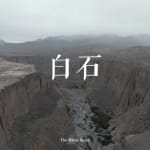Liu Xin China, b. 1991
Further images
-
(View a larger image of thumbnail 1
)

-
(View a larger image of thumbnail 2
)

-
(View a larger image of thumbnail 3
)

-
(View a larger image of thumbnail 4
)

-
(View a larger image of thumbnail 5
)

-
(View a larger image of thumbnail 6
)

-
(View a larger image of thumbnail 7
)

-
(View a larger image of thumbnail 8
)

-
(View a larger image of thumbnail 9
)

-
(View a larger image of thumbnail 10
)

-
(View a larger image of thumbnail 11
)

-
(View a larger image of thumbnail 12
)

-
(View a larger image of thumbnail 13
)

-
(View a larger image of thumbnail 14
)

-
(View a larger image of thumbnail 15
)

-
(View a larger image of thumbnail 16
)

-
(View a larger image of thumbnail 17
)

When the rocket lifts off, her body falls.
In this film, we postulate a future history of rocket debris abandonment and recovery, through a “hunt” for abandoned rocket debris in remote areas. The protagonist sets off across valleys and villages, and into the desert in the southwest of China, in a search for the debris of rockets fallen since the 1990s. She may find one, or she may never.
In this story, the white stone is the fallen body of a rocket. Shifting our gaze from the sky back to the ground, we reexamine the life span of technologies, marking the terrestrial death of an extraterrestrial object.
— Liu Xin
















